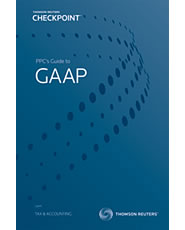Reverse Engineered Search Insufficient For IPR/PGR Estoppel | Jones Day
In GeigTech East Bay v. Lutron Electronics, patent owner GeigTech argued that Lutron should be estopped under 35 U.S.C. § 325(e)(2) from asserting two prior art grounds that it said Lutron could have reasonably raised in its post-grant review (PGR) petition). No. 18 Civ. 05290 (CM) (S.D.N.Y. Dec. 21, 2023). To support its position, GeigTech presented the court with two keyword search strings showing that each of the prior art references could be identified using Google Patents.
As we previously discussed (here), IPR/PGR estoppel applies to grounds “a skilled searcher conducting a diligent search reasonably could have been expected to discover, as these are grounds that the petitioner ‘reasonably could have raised’ in its petition.” Ironburg Inventions Ltd. v. Valve Corp., 64 F.4th 1274, 1298 (Fed. Cir. 2023). Establishing estoppel under this standard requires the patent owner to put forth (1) evidence of a “search string and search source that would identify the allegedly unavailable prior art,” and (2) “evidence, likely expert testimony, why such a criterion would be part of a skilled searcher’s diligent search.” Slip op. at 10.
As to the first prong, the court concluded that GeigTech had indeed identified a search string and source that would identify the prior art references. But, as to the second prong, GeigTech offered no evidence to explain why those search strings would be part of a diligent search:
GeigTech’s “evidence” consists solely of the search strings that were selectively assembled by its own attorneys to bolster ex post facto arguments. To the extent that the court can infer anything from these search strings, it appears that GeigTech essentially “reverse engineered” its search terms with the benefit of hindsight. It knew what patents it wanted to find … so it constructed the search strings by looking for terms that it knew were in both those patents and in the [patent-in-suit]. . . . Because the choice of these search terms was clearly the product of hindsight, one cannot infer that a skilled researcher would have found the patents from the fact that these particular searches yielded the patents.
Id. at 12.
After determining that GeigTech failed to show that a “skilled searcher who was unaware” of the two prior art references would have used those search strings as part of a diligent search, the court ruled that Lutron was not estopped from asserting those two references. Id. at 15.
Takeaway:
To establish that IPR/PGR estoppel applies, patent owners should present evidence to explain why a skilled searcher conducting a diligent search reasonably could have been expected to discover the allegedly unavailable prior art.






